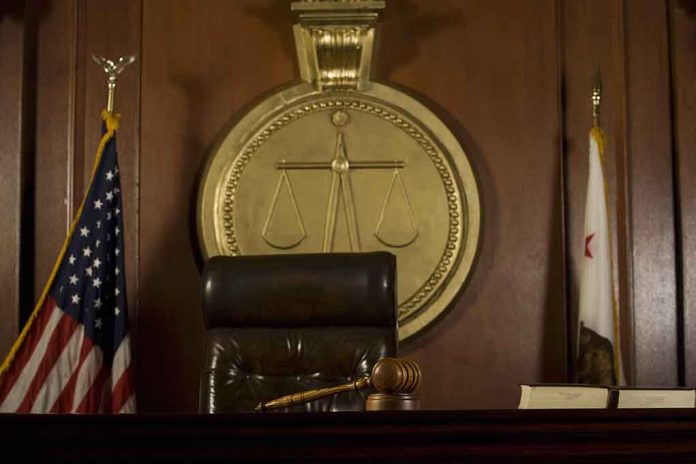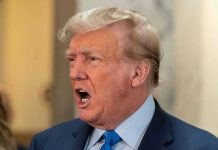
President Trump announces new judicial nominees to reshape federal courts, continuing his legacy of transforming America’s judicial landscape with conservative appointees.
Key Takeaways
- President Trump has announced several new judicial nominations including four federal district court positions in Missouri and a candidate for the Superior Court of DC.
- During his first term, Trump appointed 226 federal judges, including 54 to appeals courts, leaving a lasting conservative impact on the judiciary.
- The current pace of nominations is slower than Trump’s first term, primarily due to fewer court vacancies available for appointment.
- Whitney Hermandorfer has been nominated for the U.S. Court of Appeals for the Sixth Circuit, continuing Trump’s focus on influential appellate courts.
- Senator Josh Hawley has expressed optimism about the confirmation process for these selections, signaling potential swift progress through the Senate.
Trump’s New Judicial Strategy Takes Shape
President Trump has announced a new slate of judicial nominations, marking a significant step in his administration’s efforts to shape the federal judiciary. The nominees include Zachary Bluestone, Joshua Divine, Maria Lanahan, and Cristian Stevents for federal district court positions in Missouri, along with Edward Aloysius O’Connell for the Superior Court of the District of Columbia. This follows the earlier nomination of Whitney Hermandorfer for the U.S. Court of Appeals for the Sixth Circuit. The nominations represent Trump’s continued focus on reshaping the federal bench with judges who adhere to conservative principles and strict constitutional interpretation.
Trump Administration Releases List of Key Judicial Nominees: President Trump currently has 46 judicial vacancies to fill. https://t.co/6fT2FXc0b8 pic.twitter.com/Simx1UgnWJ
— The Western Journal (@West_Journal) May 7, 2025
Trump’s judicial nominees reflect strategic considerations for the federal bench. Joshua Divine brings impressive credentials, having clerked for Supreme Court Justice Clarence Thomas and served as chief counsel to Senator Josh Hawley of Missouri. O’Connell, a former prosecutor for the U.S. attorney’s office in Washington, D.C., was specifically selected with the mandate to address violent crime in the nation’s capital by “restoring rule of law,” according to President Trump. These appointments demonstrate the administration’s commitment to placing judges who will uphold law and order while interpreting the Constitution as written.
A Measured Pace With Significant Impact
The current pace of judicial nominations represents a departure from Trump’s first term, when he quickly filled vacancies across the federal judiciary. During his first administration, Trump had already secured Neil Gorsuch’s confirmation to the Supreme Court by this point and had a federal judge approved by late May. The slower rate of nominations in 2025 primarily stems from fewer court vacancies rather than any shift in priority. Despite the reduced tempo, Senator Josh Hawley has publicly urged the administration to expedite filling judicial vacancies, particularly in his home state of Missouri.
“it’s not enough for Democrats to simply stop fast-tracking Trump’s judges — we have been calling on them to oppose every one. Trump’s nominees are the most conservative in history, and Republicans have broken every rule, custom and norm possible to steamroll the Senate’s constitutional responsibility. It’s time for Democrats to do everything they can and unite in their opposition,” Christopher Kang added.
Trump’s earlier judicial appointments have already significantly transformed the federal judiciary. During his first term, he successfully appointed 226 federal judges, including 54 to the influential courts of appeals. This impact is particularly notable on circuit courts, where five of the twelve now have over 25% of judges appointed by Trump. The 8th Circuit experienced the most substantial transformation under Trump’s previous appointments, establishing a strong conservative influence that will continue for decades to come.
The Long-Term Significance of Judicial Appointments
The importance of these judicial appointments extends far beyond the current political cycle. Circuit courts often serve as the final arbiters in legal cases, with the Supreme Court hearing only a small percentage of appeals. This makes Trump’s focus on appeals court nominations particularly strategic. Many of his nominees have connections to the Federalist Society, which has grown to a network of 75,000 people and has been instrumental in identifying and promoting conservative judicial candidates who adhere to originalist interpretations of the Constitution.
“Judges protect what we value most in society. No matter who you are, where you come from, what you look like, or who you love, we all deserve judges who can be fair and impartial. That’s why protecting our courts needs to be a two-party job. Democrats and Republicans alike owe it to the American people to ensure that the federal courts remain an impartial institution administering ‘equal justice for all,’ not just the wealthy and the powerful,” said Sharon McGowan.
With Republicans maintaining control of the Senate, judicial confirmations are expected to proceed efficiently. Senate leadership has consistently prioritized judicial appointments, viewing them as a primary avenue for advancing conservative policies and constitutional principles. This focus on reshaping the judiciary represents one of the most enduring aspects of Trump’s legacy, with appointments that will influence American jurisprudence for decades. The new slate of nominees continues this pattern of selecting judges committed to traditional legal interpretations rather than judicial activism.
Sources:
- Trump’s Judicial Appointments Were Confirmed At Historic Pace In 2018 : NPR
- Trump Gets a Slow Start on Judges After Setting a Record Pace in First Term – The New York Times
- Trump Administration Releases List of Key Judicial Nominees



